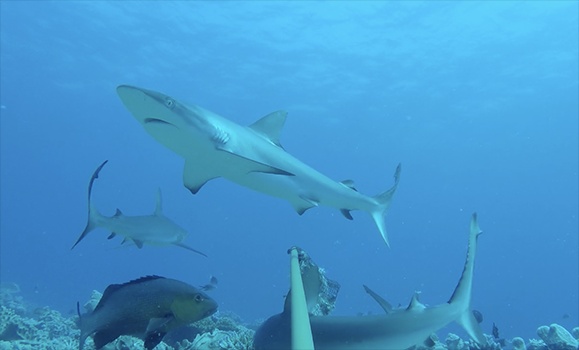With reef shark populations in crisis, researchers from across the globe are updating a seminal shark survey to assess their numbers and help in the design of new marine protected areas, or MPAs, that have been shown to stem their decline.
The $1.5-million project builds on , the world's largest shark survey on coral reefs in 58 nations from 2015 to 2018, which found reef sharks were declining globally but remained common in some MPAs when compared to unprotected areas.
Global FinPrint Phase 2, funded by the , will return to 26 nations to see how reef sharks are doing in these marine protected areas, help empower nations to improve their MPAs and provide guidance on the design of new ones.
The team, including Prof. Aaron MacNeil of ºÚÁϳԹÏÍø, will work with partners in the Atlantic, Indian and Pacific oceans to survey 50 previously sampled MPAs and 50 control sites to understand the relationships between MPA design features and reef shark abundance and trends.
The original study used baited underwater video stations to amass more than 20,000 hours of video footage that was analyzed for shark sightings. The data revealed that reef sharks were functionally extinct on close to 20 per cent of surveyed reefs and there was an average global decline of 63 per cent across five main reef shark species -- grey reef, Caribbean reef, whitetip reef, blacktip reef and nurse sharks.
Dr. MacNeil, a Canada Research Chair in Fisheries Ecology, is available to discuss this ambitious project and how understanding the role of MPAs in achieving reef shark conservation will pave the way for effective MPA networks and continued monitoring even after the project concludes.
Contact
Media interested in more information on this discovery, contact Alison Auld.

